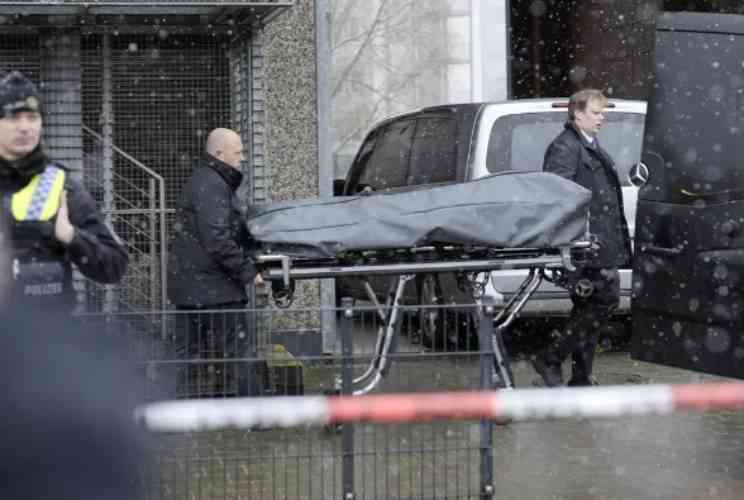×
The Standard e-Paper
Smart Minds Choose Us

Corpses are carried out of a Jehovah's Witness building in Hamburg, Germany Friday, March 10, 2023. Shots were fired inside the building used by Jehovah's Witnesses in the northern German city of Hamburg on Thursday evening, with multiple people killed and wounded, police said. [AP]
German officials say the suspected perpetrator of a mass shooting in Hamburg was a former member of the Jehovah's Witnesses.